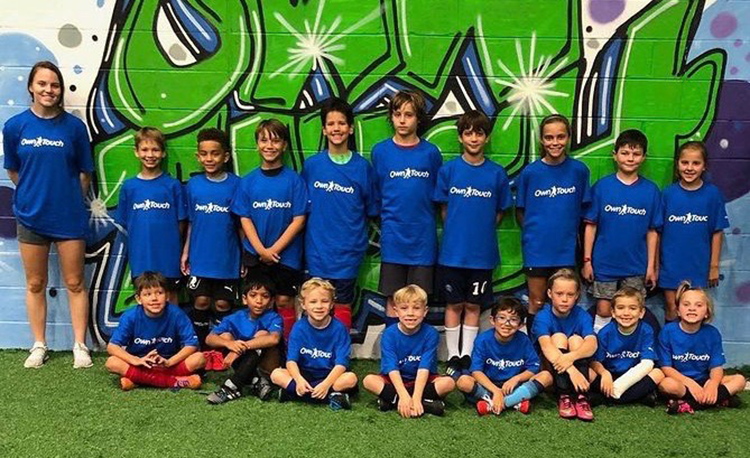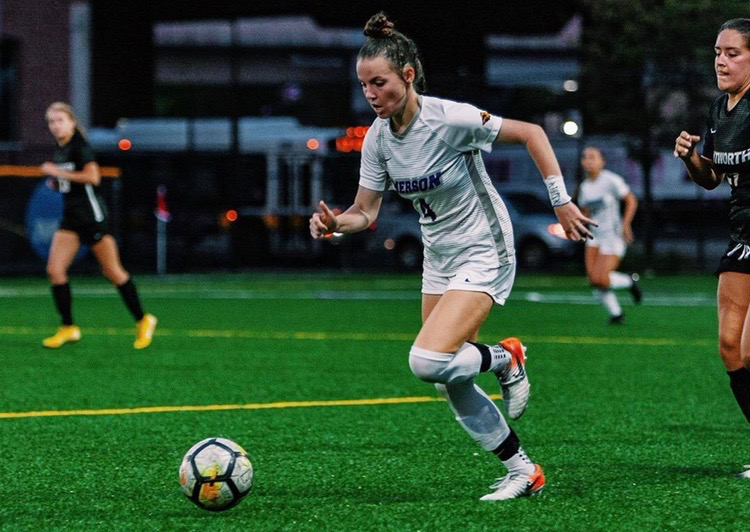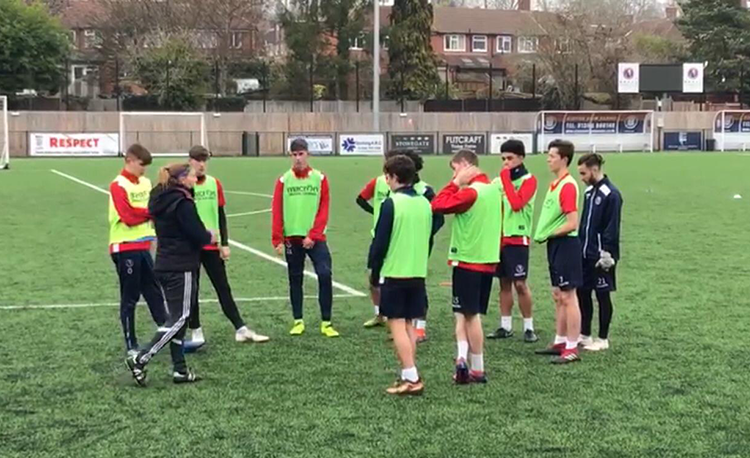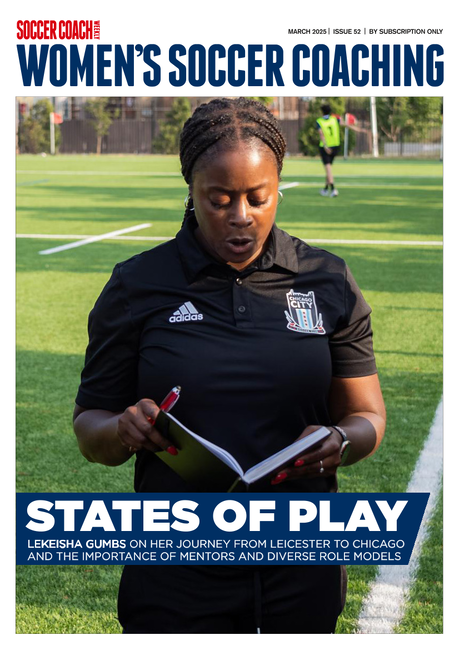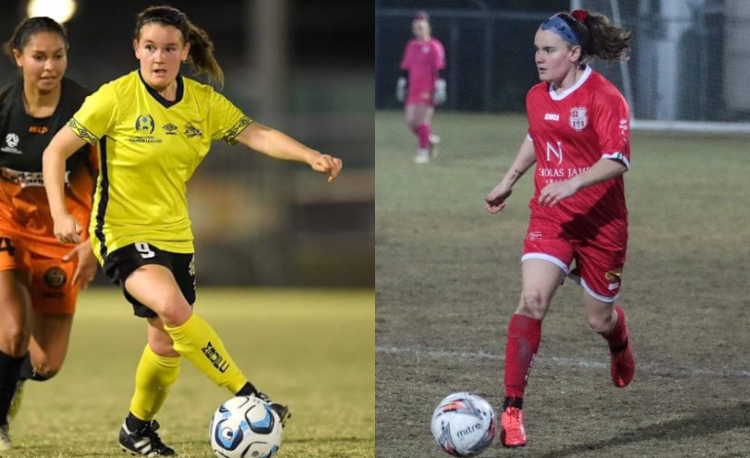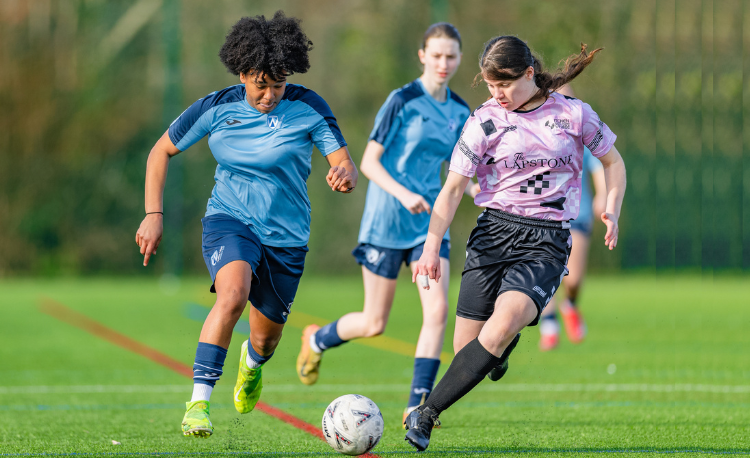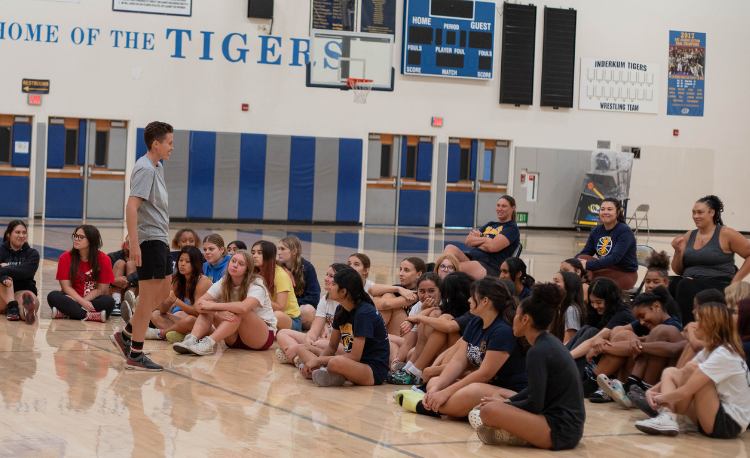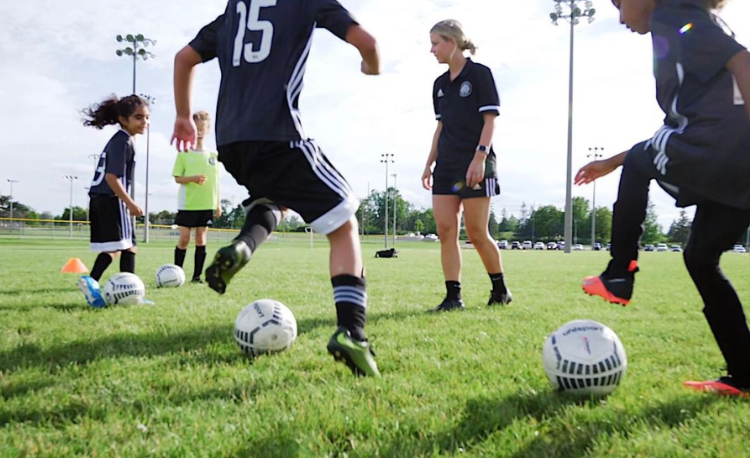You are viewing
1 of your 3 free articles
My first steps into coaching
Coaching Adviceby Cali Bruce
by Emerson Lions Women's captain Cali Bruce
I have been playing soccer for as long as I can remember.
However, around the age of 15 my "soccer IQ" began expanding and I started to see the game a little differently. I found myself analysing game strategy and practice structure in a different way than a lot of my teammates and it really sparked my interest in the idea of becoming a coach myself.
I played for my local ECNL [Elite Clubs National League] team, Richmond United, from age 12 to 18, so I was really fortunate to have been surrounded by some amazing coaches who really inspired me and educated me in my understanding of soccer and its complexities.
However, what truly ignited my passion for coaching was my experience at TOVO Academy in Spain.
However, around the age of 15 my "soccer IQ" began expanding and I started to see the game a little differently. I found myself analysing game strategy and practice structure in a different way than a lot of my teammates and it really sparked my interest in the idea of becoming a coach myself.
I played for my local ECNL [Elite Clubs National League] team, Richmond United, from age 12 to 18, so I was really fortunate to have been surrounded by some amazing coaches who really inspired me and educated me in my understanding of soccer and its complexities.
However, what truly ignited my passion for coaching was my experience at TOVO Academy in Spain.
During my senior year of high school, I moved to Sitges in Spain to participate in their training program for a few months. The head coach and founder of TOVO, former professional player and USSF A-Licence coach Todd Beane, truly opened my eyes to the lasting and life-changing impact a coach can have on a player, both cognitively and emotionally.
It was during my time in Spain that I decided that coaching was something that I really wanted to pursue.
When I returned home to the US, I began coaching players aged five to 12 at a local technical training facility.
"I started to see the game differently. It sparked my interest in becoming a coach."My love for coaching expanded as I saw with my own eyes the impact that I, as a coach, can have on children’s love for the game.
I’ve continued with that job ever since. However, I decided in the summer of 2020 that it was time to begin getting my coaching licenses.
I currently attend and play for Emerson College in Boston, Massachusetts, and when I returned to school in September I made it a priority to register for and complete my USSF Grassroots Coaching Courses.
I took the free online Introductory course and then in late October 2020 I registered for the USSF in-person Grassroots 11 v 11 Coaching Course, which was the first of three grassroots courses required to before I could apply to take my USSF “D” License course.
While I wouldn’t say it is hard to get on a course generally, there are limited opportunities available now due to Covid-19. Therefore, it is really important to pay attention to local course listings and sign up before they get full.
While it does vary state by state, in general the USSF does a good job offering an abundance of grassroots courses so that everyone who is interested in obtaining their grassroots licenses has the chance.
In the United States, we have two main coaching pathways: the USSF licensing courses and the United Soccer Coaches (formerly NSCAA) licensing courses.
Related Files
WSC-003-my-first-steps-into-coaching.pdfPDF, 535 KB
While both are highly respected and well structured, I chose to work towards my USSF licenses as they are managed by US Soccer itself, and if I choose to try and pursue my UEFA licenses one day, the USSF licenses are considered prerequisites for that pathway, while United Soccer Coaches licenses are not.
During the course, and still even now, I was really struck by how much I had to think like a coach, rather than a player. The course heavily focused on proper communication between the coach and their players.
I found these insights to be extremely useful, as I think, both as an experienced player and a young adult, it can be really easy to fall into a cycle of talking too much and giving an excessive amount of direction to my team or group of players.
Typically, the course involves the group of coaches taking turns giving direction and leading exercises for local volunteer players, as the grassroots licenses are focused on coaching youth soccer.
However, due to Covid, no local players could come in and volunteer so we were actually the ones playing, while one or two other attendees took turns being the 'head coach'.
While it would have been nice to visually see how young players reacted to the different coaching suggestions given by the instructors, I still really enjoyed the course as it was very hands on and engaging.
Out of the 20 or so attendees, I was the only female taking the course. As disappointing as it was, it didn’t surprise me as I am used to being the only female coach in all of the environments in which I have worked. However, I am hopeful that alongside the growth of the girls’ game in the United States, the number of female coaches will also increase.
Now, more than ever, alongside the continued success of the US women's national team and the growth of high-class female professional leagues globally, I’m really confident that more young girls will be inspired to take on coaching and leadership roles within soccer.
My goal is to have obtained my USSF D License before I graduate from college in 2023. In order to achieve that I have to take another in-person grassroots course this spring - you must take one online and two in- person in order to be eligible to apply to get into the D License course.
I must also find a local Massachusetts team that I can coach for a season or two. While this may be somewhat difficult to achieve alongside my busy school and soccer schedule, I am confident I can do it and further my coaching journey.
Finally, I want to let any other aspiring female coach know that, no matter your age, you can do it too. Be confident, be curious.
During the course, and still even now, I was really struck by how much I had to think like a coach, rather than a player. The course heavily focused on proper communication between the coach and their players.
I found these insights to be extremely useful, as I think, both as an experienced player and a young adult, it can be really easy to fall into a cycle of talking too much and giving an excessive amount of direction to my team or group of players.
Typically, the course involves the group of coaches taking turns giving direction and leading exercises for local volunteer players, as the grassroots licenses are focused on coaching youth soccer.
However, due to Covid, no local players could come in and volunteer so we were actually the ones playing, while one or two other attendees took turns being the 'head coach'.
While it would have been nice to visually see how young players reacted to the different coaching suggestions given by the instructors, I still really enjoyed the course as it was very hands on and engaging.
Out of the 20 or so attendees, I was the only female taking the course. As disappointing as it was, it didn’t surprise me as I am used to being the only female coach in all of the environments in which I have worked. However, I am hopeful that alongside the growth of the girls’ game in the United States, the number of female coaches will also increase.
Now, more than ever, alongside the continued success of the US women's national team and the growth of high-class female professional leagues globally, I’m really confident that more young girls will be inspired to take on coaching and leadership roles within soccer.
My goal is to have obtained my USSF D License before I graduate from college in 2023. In order to achieve that I have to take another in-person grassroots course this spring - you must take one online and two in- person in order to be eligible to apply to get into the D License course.
I must also find a local Massachusetts team that I can coach for a season or two. While this may be somewhat difficult to achieve alongside my busy school and soccer schedule, I am confident I can do it and further my coaching journey.
Finally, I want to let any other aspiring female coach know that, no matter your age, you can do it too. Be confident, be curious.
TELL US ABOUT YOUR COACHING JOURNEY...
We want to hear your coaching stories.
What inspired you to become a coach? Did you start after a long playing career and a desire to stay in the game? Were you injured and used that time to earn your badges? Or did you start young?
What about your coaching idols - who did you learn the most from? Which club did you start at and which has proven the most influential in your career?
Have you developed a particular philosophy? Perhaps you have some innovative ideas you want to share with the coaching community. We have subscribers all over the world.
Basically, we want you to tell us all about yourself - where you've been and where you're going to. The best submissions will appear in the magazine - we may ask you to flesh it out into a full article, or even invite you to submit one of your session plans for inclusion in a future issue.
So tell us all about your coaching career in an email to editor@womenssoccercoaching.com, remembering to include your full name, age and current club. We look forward to reading it!
What inspired you to become a coach? Did you start after a long playing career and a desire to stay in the game? Were you injured and used that time to earn your badges? Or did you start young?
What about your coaching idols - who did you learn the most from? Which club did you start at and which has proven the most influential in your career?
Have you developed a particular philosophy? Perhaps you have some innovative ideas you want to share with the coaching community. We have subscribers all over the world.
Basically, we want you to tell us all about yourself - where you've been and where you're going to. The best submissions will appear in the magazine - we may ask you to flesh it out into a full article, or even invite you to submit one of your session plans for inclusion in a future issue.
So tell us all about your coaching career in an email to editor@womenssoccercoaching.com, remembering to include your full name, age and current club. We look forward to reading it!
Newsletter Sign Up
Newsletter Sign Up
Discover the simple way to become a more effective, more successful soccer coach
In a recent survey 89% of subscribers said Women's Soccer Coaching makes them more confident, 91% said Women's Soccer Coaching makes them a more effective coach and 93% said Women's Soccer Coaching makes them more inspired.
*includes 3 coaching manuals
Get Inspired
All the latest techniques and approaches
Women's Soccer Coaching offers proven and easy to use soccer drills, coaching sessions, practice plans, small-sided games, warm-ups, training tips and advice.
We've been at the cutting edge of soccer coaching since we launched Soccer Coach Weekly in 2007, creating resources for the grassroots youth coach, following best practice from around the world and insights from the professional game.
